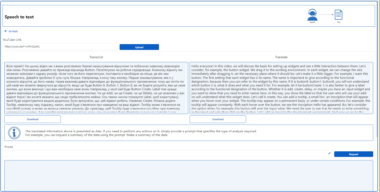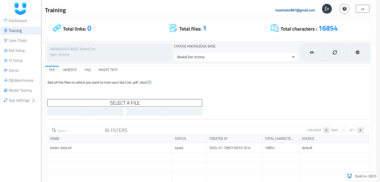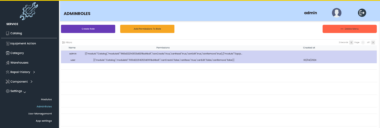Frequently Asked Questions (FAQ) about Salesforce MCP Server
Q: What is the Salesforce MCP Server? A: The Salesforce MCP Server is an implementation of the Model Context Protocol (MCP) that allows AI models like Claude to interact with your Salesforce data and metadata using natural language.
Q: What are the main features of the Salesforce MCP Server? A: Key features include object and field management, smart object search, detailed schema information, flexible data queries, data manipulation, cross-object search (SOSL), and intuitive error handling.
Q: How does the Salesforce MCP Server work with Claude? A: The MCP Server acts as a bridge, translating natural language commands from Claude into actions within Salesforce, such as querying records, creating objects, or updating fields.
Q: What is MCP (Model Context Protocol)? A: MCP is an open protocol that standardizes how applications provide context to Large Language Models (LLMs), enabling them to interact with external data sources and tools.
Q: What are the benefits of using the Salesforce MCP Server? A: Benefits include simplified Salesforce management, increased efficiency, improved data accessibility for AI models, and automation of tasks using natural language.
Q: How do I install the Salesforce MCP Server?
A: You can install the server globally using npm: npm install -g @surajadsul02/mcp-server-salesforce
Q: What are the authentication methods supported by the Salesforce MCP Server? A: The server supports Username/Password Authentication (with a security token) and OAuth2 Authentication with a Consumer Key/Secret.
Q: What environment variables are required for Username/Password Authentication?
A: Required environment variables are SALESFORCE_USERNAME, SALESFORCE_PASSWORD, SALESFORCE_TOKEN, and optionally SALESFORCE_INSTANCE_URL.
Q: What environment variables are required for OAuth2 Authentication?
A: Required environment variables are SALESFORCE_USERNAME, SALESFORCE_PASSWORD, SALESFORCE_CONSUMER_KEY, SALESFORCE_CONSUMER_SECRET, and optionally SALESFORCE_INSTANCE_URL.
Q: How do I configure the Salesforce MCP Server for Cursor IDE?
A: Add a mcp.json file in the .cursor directory with the appropriate configuration for your authentication method.
Q: How do I configure the Salesforce MCP Server for Claude Desktop?
A: Add the Salesforce MCP Server configuration to your claude_desktop_config.json file, located in the appropriate directory for your operating system.
Q: What are some example use cases for the Salesforce MCP Server? A: Use cases include searching objects, getting schema information, querying records, managing custom objects, and searching across multiple objects.
Q: What should I do if I encounter authentication errors? A: Verify your credentials are correct, ensure your security token is correct (for username/password auth), and verify your consumer key and secret (for OAuth2).
Q: What should I do if I have connection issues? A: Check your Salesforce instance URL, verify network connectivity, and ensure proper API access permissions.
Q: How can I contribute to the Salesforce MCP Server project? A: Contributions are welcome! Feel free to submit a pull request on the GitHub repository.
Q: Where can I find help and support for the Salesforce MCP Server? A: If you encounter any issues or need support, please file an issue on the GitHub repository.
Salesforce Connector
Project Details
- usama-dtc/salesforce_mcp
- @surajadsul02/mcp-server-salesforce
- MIT License
- Last Updated: 3/24/2025
Recomended MCP Servers
This read-only MCP Server allows you to connect to Excel Online data from Claude Desktop through CData JDBC...
A Model Context Protocol (MCP) server for interacting with Home Assistant. This server provides tools to control and...

A MCP server to interact with Hex projects
A Model Context Protocol (MCP) server that provides a comprehensive set of tools for Python development
MCP Server with Remote SSH support

一款轻量级、跨平台的 Mini Kubernetes AI Dashboard,支持大模型+智能体+MCP(支持设置操作权限),集成多集群管理、智能分析、实时异常检测等功能,支持多架构并可单文件部署,助力高效集群管理与运维优化。

일있당께 백엔드

A Model Context Protocol (MCP) server that provides access to NS (Dutch Railways) travel information through Claude AI....

Mattermost MCP server to enable Claude to interact with Mattermost Workspaces
 From vibe coding to vibe deployment. UBOS MCP turns ideas into infra with one message.
From vibe coding to vibe deployment. UBOS MCP turns ideas into infra with one message.





